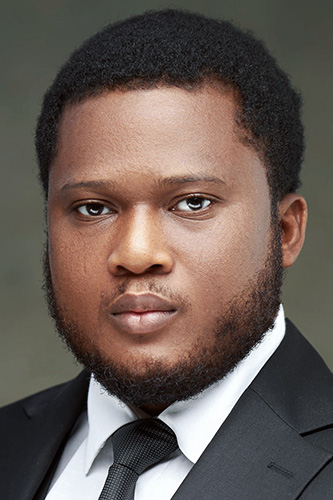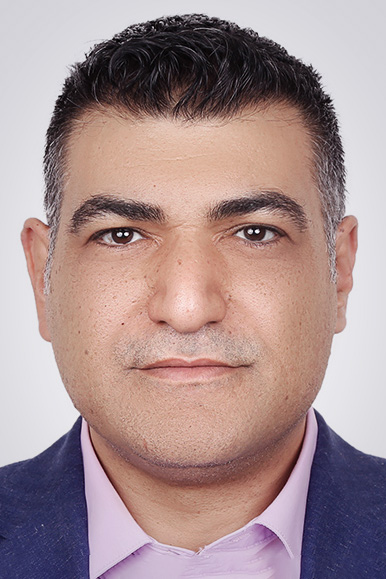

 As the world grows more connected and more complicated, we all need ways of defining, identifying and keeping track of things and cross-referencing them with their owners. The simplest way to do that is with registries -- everything from the Domesday Book, a medieval registry of land, property and people; to current-day auto registries on the one hand and the worldwide Domain Name System on the other...But now, companies and organizations have to keep track of ever more things and people, not just inside their walls but across extended organizational boundaries. Call this new wrinkle an "external registry". Finally, they may want to interact with things and people, rather than just look them up, via an "active registry". more
As the world grows more connected and more complicated, we all need ways of defining, identifying and keeping track of things and cross-referencing them with their owners. The simplest way to do that is with registries -- everything from the Domesday Book, a medieval registry of land, property and people; to current-day auto registries on the one hand and the worldwide Domain Name System on the other...But now, companies and organizations have to keep track of ever more things and people, not just inside their walls but across extended organizational boundaries. Call this new wrinkle an "external registry". Finally, they may want to interact with things and people, rather than just look them up, via an "active registry". more
The National Academy of Science (NAS) has been brought into the controversy over the future development of the Internet and its domain name system, a controversy recently fueled by the creation of ICANN. The US Congress under Public Law 105-305 mandated that the NAS undertake a study of the domain name system, which is to include options for its development, and the potential impact of the various alternatives. The $800,000 expenses for the study are to be funded by the National Science Foundation and the US Department of Commerce. more
A three-decade natural experiment suggests America's centralized regulatory review fostered far greater wealth creation than Europe's precautionary principle, raising stark questions about whether importing EU-style AI rules would undermine US innovation and prosperity. more
After quelling nationwide protests, Iran has intensified its use of digital surveillance, deploying phone tracking, facial recognition and online monitoring to identify, intimidate and detain dissenters through a vast state-controlled communications infrastructure. more
 Iran's 2026 internet shutdown was not a glitch but a trial of digital sovereignty, revealing how easily connectivity can be weaponised to silence society, concentrate state power, and fracture the promise of a global internet. more
Iran's 2026 internet shutdown was not a glitch but a trial of digital sovereignty, revealing how easily connectivity can be weaponised to silence society, concentrate state power, and fracture the promise of a global internet. more
 Global digital policy frameworks often overlook the realities of African SMEs, imposing compliance standards shaped by mature economies and infrastructure, thereby constraining innovation, competitiveness, and inclusion in the digital economy. more
Global digital policy frameworks often overlook the realities of African SMEs, imposing compliance standards shaped by mature economies and infrastructure, thereby constraining innovation, competitiveness, and inclusion in the digital economy. more
Iran is finalizing a nationwide internet isolation system that would allow authorities to disconnect from the global web, as protests continue and external equipment sources, including Huawei, remain shrouded in secrecy. more
 The Internet Society is accepting nominations for two seats on the 2026 Board of the Public Interest Registry, the non-profit behind .ORG and other domains serving civil society. Deadline: 30 January 2026. more
The Internet Society is accepting nominations for two seats on the 2026 Board of the Public Interest Registry, the non-profit behind .ORG and other domains serving civil society. Deadline: 30 January 2026. more
 In African Internet governance, procedural authorship is quietly displacing community legitimacy. When conveners, not members, define reform processes, legitimacy becomes retrospective and trust erodes -- not by intention, but through unchecked structural roles. more
In African Internet governance, procedural authorship is quietly displacing community legitimacy. When conveners, not members, define reform processes, legitimacy becomes retrospective and trust erodes -- not by intention, but through unchecked structural roles. more
 The UN's move to grant permanence to the Internet Governance Forum reframes legitimacy in digital policy. As states accelerate action, multistakeholder processes risk becoming ceremonial, with speed replacing consent as the arbiter of influence. more
The UN's move to grant permanence to the Internet Governance Forum reframes legitimacy in digital policy. As states accelerate action, multistakeholder processes risk becoming ceremonial, with speed replacing consent as the arbiter of influence. more
 Despite deep geopolitical divides, the WSIS+20 outcome document was adopted by consensus, preserving a multistakeholder vision for the digital future while deferring controversial issues to a time more conducive to progress. more
Despite deep geopolitical divides, the WSIS+20 outcome document was adopted by consensus, preserving a multistakeholder vision for the digital future while deferring controversial issues to a time more conducive to progress. more
 ICANN's role in Smart Africa's governance blueprint highlights a widening divide between legality and legitimacy. Funding and participation occurred without early community consultation, raising concerns about procedural integrity, RIR independence, and the precedent such interventions may set for global Internet governance. more
ICANN's role in Smart Africa's governance blueprint highlights a widening divide between legality and legitimacy. Funding and participation occurred without early community consultation, raising concerns about procedural integrity, RIR independence, and the precedent such interventions may set for global Internet governance. more
 A revised governance document for Regional Internet Registries aims to replace outdated policy, enhancing transparency, continuity, and oversight in managing IP resources while preparing for future disruptions across the global Internet infrastructure. more
A revised governance document for Regional Internet Registries aims to replace outdated policy, enhancing transparency, continuity, and oversight in managing IP resources while preparing for future disruptions across the global Internet infrastructure. more
 As multistakeholder governance nears a critical juncture, leaders must navigate diverging views, geopolitical pressures and technological upheaval. With sovereignty concerns mounting, the Internet's institutions face a complex future that demands deft stewardship. more
As multistakeholder governance nears a critical juncture, leaders must navigate diverging views, geopolitical pressures and technological upheaval. With sovereignty concerns mounting, the Internet's institutions face a complex future that demands deft stewardship. more
Alice Munyua criticises ICANN's support for a proposed African internet governance overhaul, arguing it undermines multistakeholder principles and sets a dangerous precedent of political interference in global internet infrastructure. more